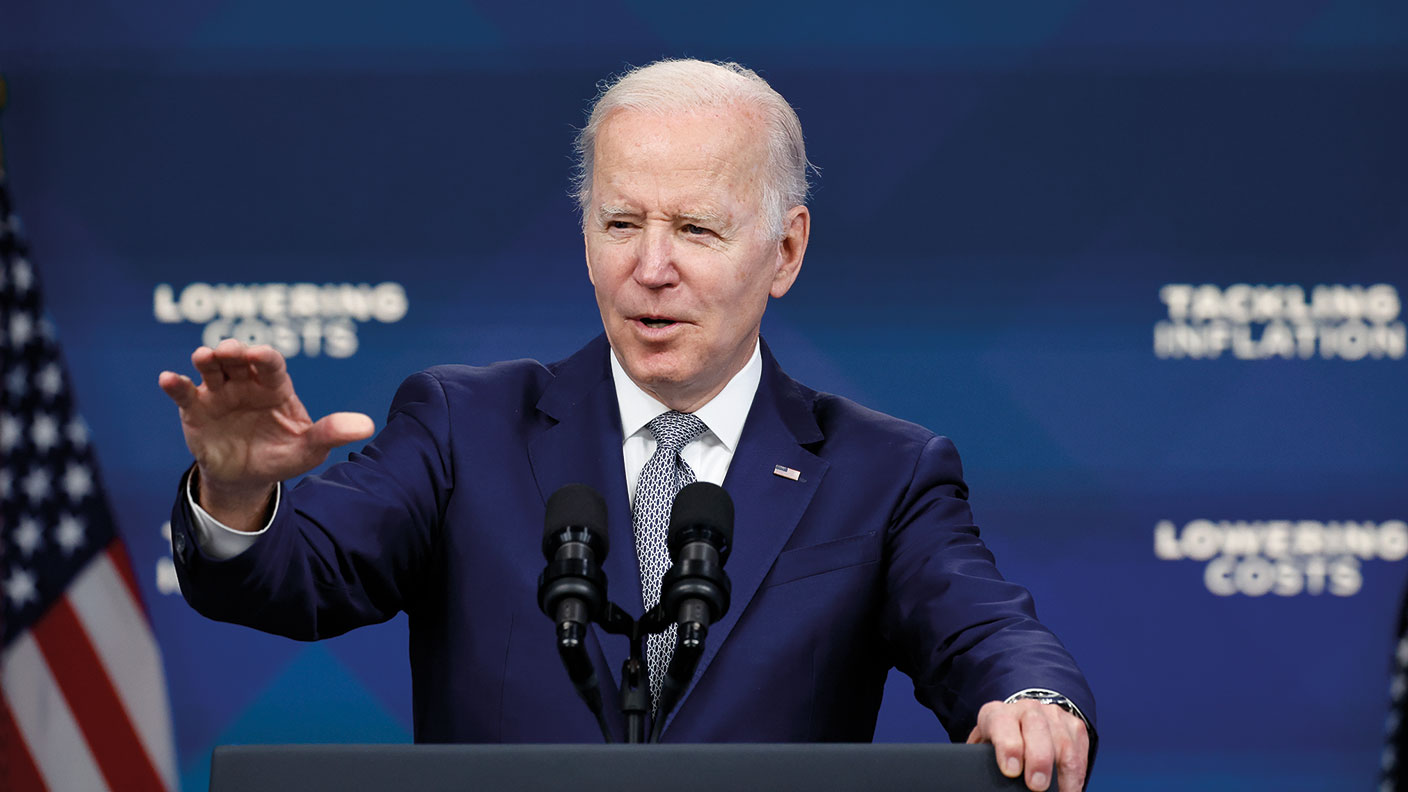Missing the point on bitcoin
It may be boring to say that bitcoin is useless as a currency, but that blockchain technology has a future. But it's true, says Merryn Somerset Webb.

Get the latest financial news, insights and expert analysis from our award-winning MoneyWeek team, to help you understand what really matters when it comes to your finances.
You are now subscribed
Your newsletter sign-up was successful
Want to add more newsletters?

Twice daily
MoneyWeek
Get the latest financial news, insights and expert analysis from our award-winning MoneyWeek team, to help you understand what really matters when it comes to your finances.

Four times a week
Look After My Bills
Sign up to our free money-saving newsletter, filled with the latest news and expert advice to help you find the best tips and deals for managing your bills. Start saving today!
Last week I wrote about bitcoin. It is (or was, before its 50% crash) one of the most obvious speculative bubbles our generation has ever seen. This didn't go down well with some. It turns out that writing about cryptocurrencies is nearly as dangerous as writing about Scottish politics. I got some very nasty mail, presumably from people who have bet a bit too much on bitcoin (lots of swear words). I got some silly emails (arguing mainly that as bitcoin has gone up a lot in the past, it will go up a lot in the future). And I got a good number of sensible, clever and thoughtful emails.
But still a lot of them missed what I think is the point. It has become pretty boring to say that blockchain technology has a future. But it probably does. A shared ledger technology that allows encrypted data to be exchanged privately between individuals and companies could disintermediate stock exchanges, transform payment systems, and (my own hobby horse) reinvigorate shareholder democracy, by enabling the return of voting power to the real beneficiary owners of equities (retail investors like you and me). It's also likely at some point to create real profits.
But those profits will accrue to the systems, not to the coins, which are just the tokens that permit the exchange. The value is in the former, not the latter. The only way to think the opposite is to assume that a cryptocurrency might really become a global medium of exchange that everyone needs in order to transact. But unless that currency is government-created or sponsored, it probably won't. Why? Because states get to say what is money and what is not. Try paying your taxes in bitcoin, or settling your debts with a Nocoiner (the crypto enthusiast's name for those who missed the bubble) with bitcoin. You won't find it easy. And if a medium of exchange isn't liquid and legally acceptable (because trading is banned, or it falls foul of money-laundering rules whatever) it can't act as money. No amount of hoping, praying, or use of the phrase "asset class" can change that.
MoneyWeek
Subscribe to MoneyWeek today and get your first six magazine issues absolutely FREE

Sign up to Money Morning
Don't miss the latest investment and personal finances news, market analysis, plus money-saving tips with our free twice-daily newsletter
Don't miss the latest investment and personal finances news, market analysis, plus money-saving tips with our free twice-daily newsletter
Regular readers will know that we love innovation, that we constantly praise human ingenuity, and that one of our aims is to ensure that you get into the next long-term sustainable big thing in good time. But you should, I suspect, put bitcoin and the blockchain to one side for now. It'll be a while before it is clear who will find a way to create sustainable value from the systems (read our own Dominic Frisby on this at our website). Instead, see how technology is transforming much of Africa, then read Mike Tubbs's cover story on how firms that are already successful are using research and development investment to gain a growth edge. These are the kinds of investments that will make you tangible returns in real money.
Get the latest financial news, insights and expert analysis from our award-winning MoneyWeek team, to help you understand what really matters when it comes to your finances.

-
 Average UK house price reaches £300,000 for first time, Halifax says
Average UK house price reaches £300,000 for first time, Halifax saysWhile the average house price has topped £300k, regional disparities still remain, Halifax finds.
-
 Barings Emerging Europe trust bounces back from Russia woes
Barings Emerging Europe trust bounces back from Russia woesBarings Emerging Europe trust has added the Middle East and Africa to its mandate, delivering a strong recovery, says Max King
-
 What to do as the age of cheap money and overpriced equities ends
What to do as the age of cheap money and overpriced equities endsEditor's letter The age of cheap money, overpriced equities and negative interest rates is over. The great bond bull market is over. All this means you will be losing money, says Merryn Somerset Webb. What can you do to protect yourself?
-
 Investors are bullish – but be very careful
Investors are bullish – but be very carefulEditor's letter Many investors are buying the dip, convinced the latest upswing is the start of a new bull market. The odds are that it’s not, says Andrew Van Sickle. The bear has unfinished business.
-
The MoneyWeek approach to investing
Editor's letter At MoneyWeek, our aim is simple: to give you intelligent and enjoyable commentary on the most important financial stories, and tell you how to profit from them. So how do we do that?
-
 Celebrity bitcoin ads echo the subprime mortgage crisis
Celebrity bitcoin ads echo the subprime mortgage crisisEditor's letter A wave of ads featuring celebrities punting crypto to the masses are reminiscent of how low income Americans were encouraged to take on loans they couldn’t afford, says Merryn Somerset Webb.
-
 Will the UK's property slowdown turn into a house-price crash?
Will the UK's property slowdown turn into a house-price crash?Editor's letter As the cost-of-living crisis intensifies and interest rate rise, it is hard to see reasons for UK house prices to keep rising, says Merryn Somerset Webb.
-
 The unintended consequences of ESG investing
The unintended consequences of ESG investingEditor's letter Many people are refusing to invest in energy companies, citing "ESG" concerns. But we still need fossil fuels, says Merryn Somerset Webb, and will for years to come. Boycotting the sector is a bad idea.
-
 What sardines can teach investors about today's markets
What sardines can teach investors about today's marketsEditor's letter A California tale of “eating sardines” and “trading sardines” can help us divide investments into speculative and real, says Merryn Somerset Webb. Something that's very useful when looking at today’s markets.
-
 The market finally seems to be getting it
The market finally seems to be getting itEditor's letter Reality checks are coming fast to the markets, says Merryn Somerset Webb – with even 2022’s safe havens beginning to reflect recession worries.